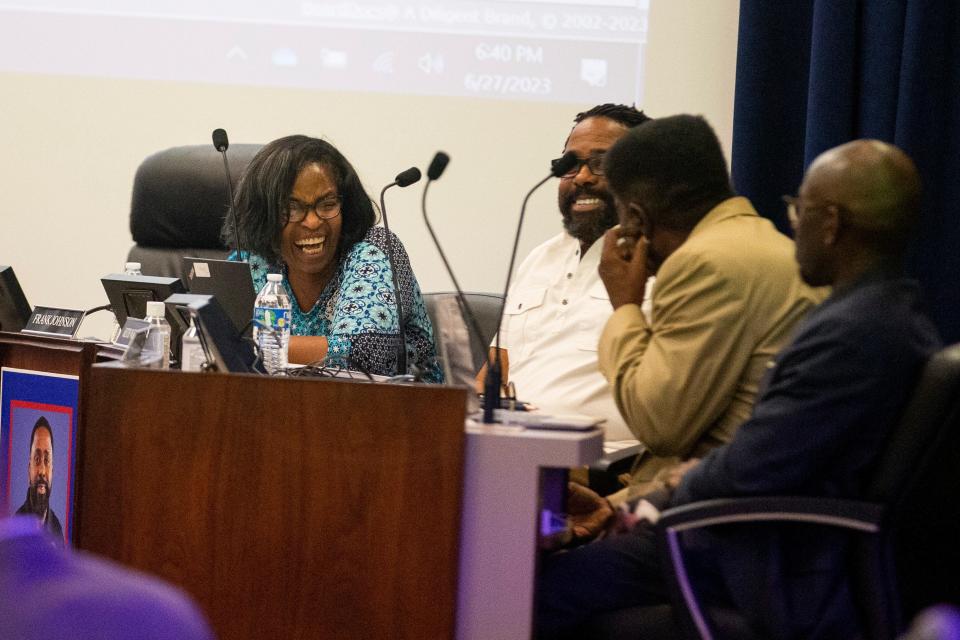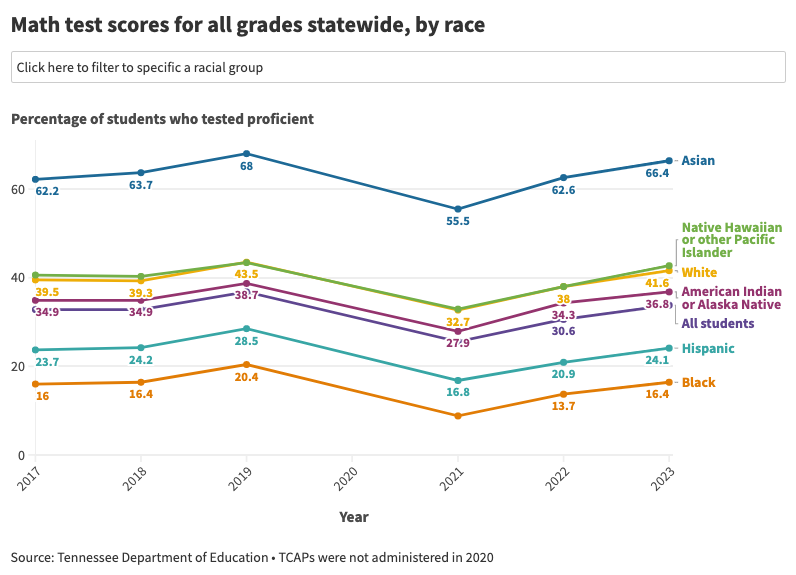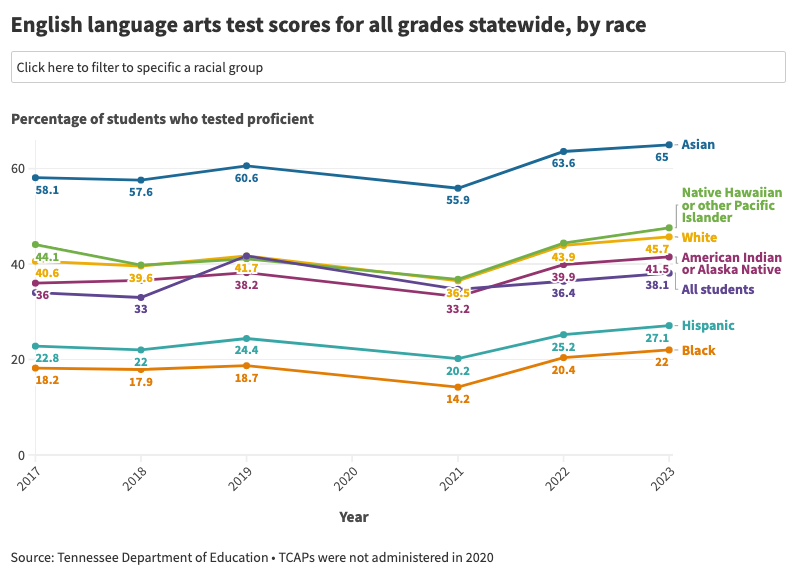'Extending learning:' MSCS touts improving test scores, acknowledges room for growth
In one classroom at Shelby Oaks Elementary School, a group of kindergarteners played a game called “Fishing for Site Words.” In another, a batch of third graders discussed a story about astronauts and took part in a reading comprehension activity dubbed a “Gallery Walk.”
Part of Memphis Shelby County Schools’ Summer Learning Academy, the classes were showcased to members of the media on July 18, and they underscored a larger point reiterated by district officials during a roundtable discussion – to extend students’ learning gains, they must extend learning opportunities.
And MSCS leaders believe that the latest standardized test scores strengthen this assertion.
More: Shelby County Commission taps Mauricio Calvo for vacant school board seat
On Tuesday, the Tennessee Department of Education released the Tennessee Comprehensive Assessment Program scores, and for the second year in a row, MSCS students showed improvement.
When compared to 2022, the percentage of third-to-twelfth-grade students who met or exceeded expectations in 2023 increased in 10 out of 11 categories. Students showed improvement in math and science across every grade level, and the English Language Arts proficiency rate ― which already surpassed pre-pandemic levels in 2022 ― increased again this year.

“We have rebounded from what we lost in the pandemic,” said Cathryn Stout, MSCS’ chief of communications and broadcast services. “We know that slow, steady gains do lead to sustainable growth… To keep extending gains, we have to keep extending learning.”
Learning extensions could help the district continue to improve its scores, which remain significantly behind the state average. For example, the number of MSCS students who met or exceeded expectations in math rose from 12.8% in 2022 to 15.2% in 2023. Statewide, students improved from 30.6% to 33.8% in that category. And in English Language Arts, the number of students who met or exceed expectations inched up from 21.4% to 22.4%. Statewide, that percentage ticked up from 36.4% to 38%.
One particular group MSCS plans to place a major emphasis on going forward is 7th grade, which saw some performance dips when compared to last year.
“Seventh grade is going to be one we really need to target, one that stood out to us in both ELA and math,” said Bill White, MSCS’ director of assessment and accountability. “That’s going to be a heavy focus. All of it will be, but we’ve begun looking at the data to try to figure it out.”

Another area that continues to be a priority is the reading level of MSCS third graders. Third grade is considered a pivotal time in a student’s formation ― the period when they go from learning to read to reading to learn ― and in recent years the district has struggled to strengthen their reading abilities.
Students did show signs of improvement in 2023, as 23.6% of third graders earned proficient scores on the latest TCAP reading tests, according to Chalkbeat Tennessee. For comparison, 16.5% of those same students earned proficient scores when they were in second grade.
That, however, still left a wide array of students who could potentially be held back, as the state has passed a reading retention law that requires third graders to earn at least a proficient mark to move into the fourth grade.
But the law also allowed students who didn’t reach a proficient score – and placed in either the “below” or “approaching” categories – to still move into the next grade by attending summer classes.
MSCS third graders who didn’t earn a proficient score had to enroll in the SLA and have a 90% attendance rate. Those who had earned an “approaching” score also had to show a 5% improvement on a post test. If they don't meet that mark, they can still move onto the fourth grade. But they’ll be expected to receive year-round tutoring.

Students who earned an “approaching” score are slated to receive year-round tutoring regardless of their posttest score. And there are expected to be several thousand students who receive tutoring this fall.
The district officials also acknowledged that there are third-grade students expected to be held back, as some didn’t enroll in SLA or meet the 90% attendance rate, while others who had parents who preferred they repeat the third grade.
During the roundtable Tuesday, they weren’t able to provide an estimate of the number of third graders set to be held back. But Stout noted that it’s important to “destigmatize” the need for “extra help.
“It’s okay if a child needs an extra year to get it, especially coming out of a pandemic,” she said. “It’s not a race.”
And she, as well as other MSCS leaders, continue to express confidence in the district’s future ― even if they also admit that there’s more room for improvement.
“I recognize and celebrate the progress that we’re making,” said Mauricio Calvo, the executive director of Latino Memphis who was tapped to fill a vacant board seat yesterday. “We have a long way to go.”
This article originally appeared on Memphis Commercial Appeal: MSCS' plans for 'extended learning,' other details on TCAP scores
